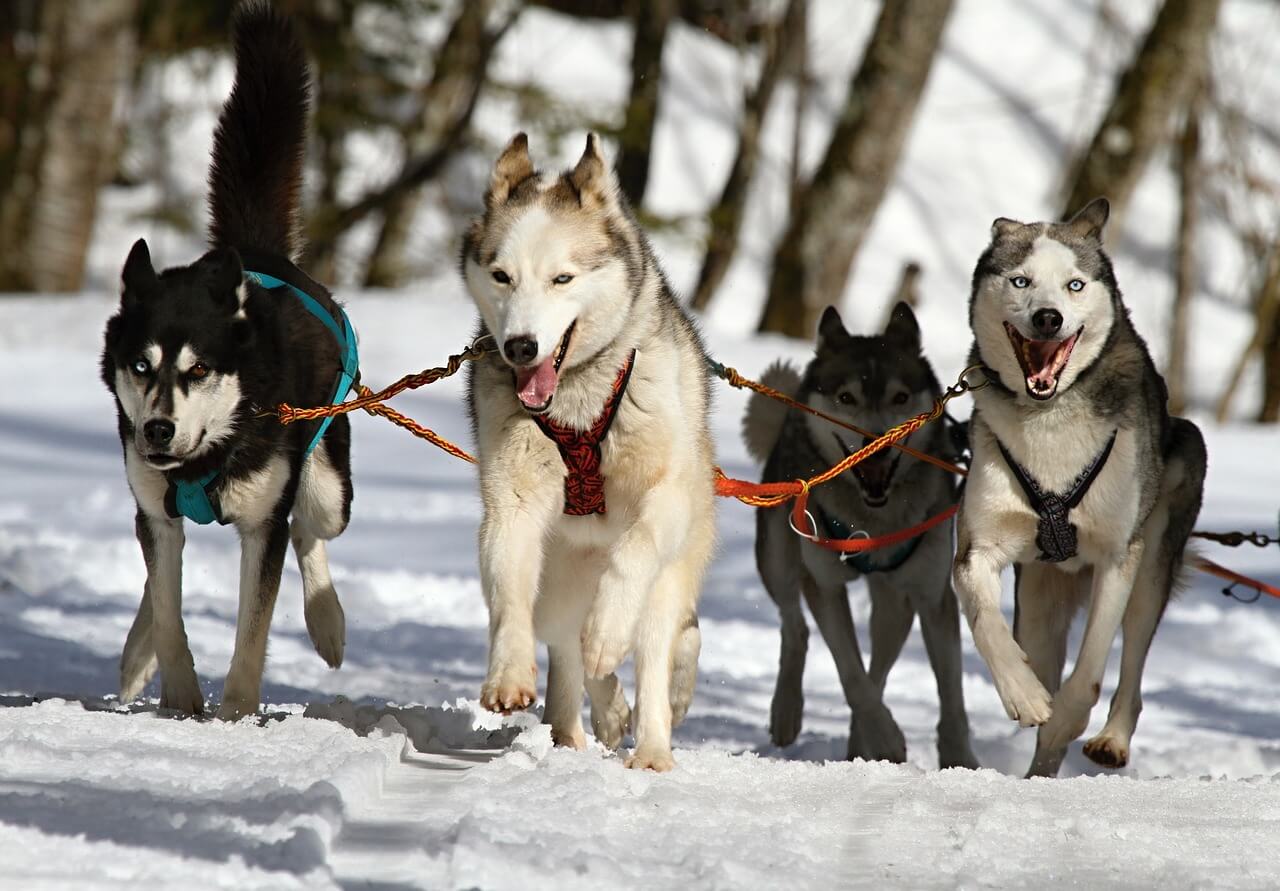Winter is a season that brings both snowy landscapes and joyful celebrations. It also requires us to give care and attention to our furry companions. Pet parents must ensure their happiness, health, and comfort during these frosty months. Here are some tips.
Tailoring Their Diet for the Cold Season
When the temperature drops, our dogs need a bit more fuel to keep themselves warm. Just like us, they tend to burn more calories during the winter to maintain their body heat. This means, your pup might need a slight uptick in their food intake. But remember, this doesn't mean overfeeding – it's about finding that sweet spot!
Consider adding a bit more to their regular meals, especially if they are an active breed or spend a lot of time outdoors. It's important to stay vigilant, about their weight. You don't want to substitute winter fun with unwanted extra pounds.
Quality matters too. Ensure their diet is rich in essential nutrients that support their skin and coat health, which can take a hit due to dry, cold air. It's always an idea to talk to your veterinarian and work together to create the winter diet for your beloved pet.
Keeping Them Snug Indoors and Outdoors
Winter isn't just about the holiday spirit; it's also about ensuring our dogs are warm and comfortable. Indoors, your dog will appreciate a cozy spot away from drafts. A warm dog bed is perfect for this. Look for one that's well-insulated and placed in a warm area of your home. It's their little haven from the cold!
When venturing outdoors, some dogs, especially those with shorter coats, benefit greatly from an extra layer. A fitted sweater or coat can be a game-changer in keeping them warm during those brisk walks. Remember, if it’s too cold for you, it's probably too cold for them, too.
During the winter season it's crucial to provide your four companion with a bed and suitable attire. These not offer comfort. Also play a vital role in maintaining their overall health and well being. While indoors, ensure your dog has a cozy, draft-free place to rest. A quality, insulated dog bed can make a big difference. For outdoor adventures, a snug dog coat or sweater is ideal, especially for short-haired breeds. It’s a simple rule: if it's too chilly for you, it's likely the same for your pup. Make sure to keep them cozy and snug whether they're indoors or venturing out into the landscape.
Paw Care
Winter can be tough on your dog's paws. The cold ground, snow, ice, and even de-icing chemicals can cause dryness, cracking, or irritation. It's crucial to give some extra attention to those adorable paws. After each walk, wipe their paws gently to remove any salt or chemical residues. This helps prevent irritation and ingestion of harmful substances when they lick their paws.
To provide protection you might want to think about using booties for your dog's paws or applying a paw balm. Booties serve as a shield, against the weather conditions while balms can help moisturize and heal cracked paws. Both options are methods to ensure that your friend's paws stay healthy during the winter season.
Regular Grooming
Winter grooming is about more than keeping your dog looking good – it's about their health too. In the colder months, dogs can suffer from dry, flaky skin. Regular grooming helps to remove dead hair and skin, and it stimulates the skin's natural oils, keeping their coat in top condition. But, there's a balance. Bathing them too often can strip away these essential oils, leading to drier skin.
A good rule of thumb is to follow a recommended grooming routine that suits your dog’s breed and coat type. Always use a dog-specific shampoo that's gentle and moisturizing. Between baths, consider using a grooming brush to keep their coat clean and free of mats, which can hold moisture and cause skin irritation.
Hydration is Key
It's a common misconception that dogs need less water in the winter because they're not overheating. In reality, staying hydrated is just as important during the cold months. The dry winter air can dehydrate your dog, and if they're eating more dry food due to increased calorie needs, their requirement for water goes up too.
Make sure your dog always has access to fresh, clean water. Sometimes, dogs might be less inclined to drink cold water when it's chilly outside, so you can try offering room-temperature water to encourage them to drink more. It's important to keep an eye on their water consumption to make sure they stay hydrated, through the season.
Exercise and Play
Just because it's cold outside doesn't mean your dog should become a couch potato. Staying active during the winter months is essential, for maintaining mental well being. However, the approach to winter exercise might be different. Shorter, more frequent walks can be more beneficial than long strolls, especially during extremely cold days.
Indoor play is also a fantastic way to keep them active. Interactive toys, hide and seek, or even setting up a small obstacle course can provide great mental and physical stimulation. For dogs that love the outdoors, make sure they are properly attired with their winter gear, and always watch for signs of discomfort or cold, like shivering or reluctance to keep moving.
Monitoring Health
Winter can bring its own set of health challenges for dogs. Being vigilant about any changes in your dog’s behavior or health during this season is essential. Watch for signs of hypothermia, especially after they’ve been outside, such as excessive shivering, lethargy, or weakness. Frostbite is another risk, though less common, and typically affects the paws, ears, and tail. Keep an eye out for pale, hard skin that may turn red and puffy after they come inside.
Regular visits, to the veterinarian, are extremely important particularly if your dog is older or has any health issues that may be worsened by the weather. Don’t hesitate to contact your vet if you notice anything unusual, like a persistent cough or changes in eating habits. Remember, early detection is key to effectively managing any health issues.
Conclusion
Winter can be a time to enjoy activities and cozy nights with your furry friend. To keep your dog safe, happy and healthy during this season it's important to make an adjustments. Here are seven essential tips to help you navigate the winter months with your canine companion. Remember, taking care of your dog in winter means being mindful of their diet grooming routine, exercise needs and overall well being.
Make sure to stay vigilant for any indications of discomfort or potential health problems and don't hesitate to seek guidance from your veterinarian who can provide tailored advice based on your dog's requirements. With care and attention the winter season can offer plenty of enjoyment and fun for both you and your furry friend.
Read More:https://suggsfalls.site/a/blog/how-cold-is-too-cold-for-dogs








